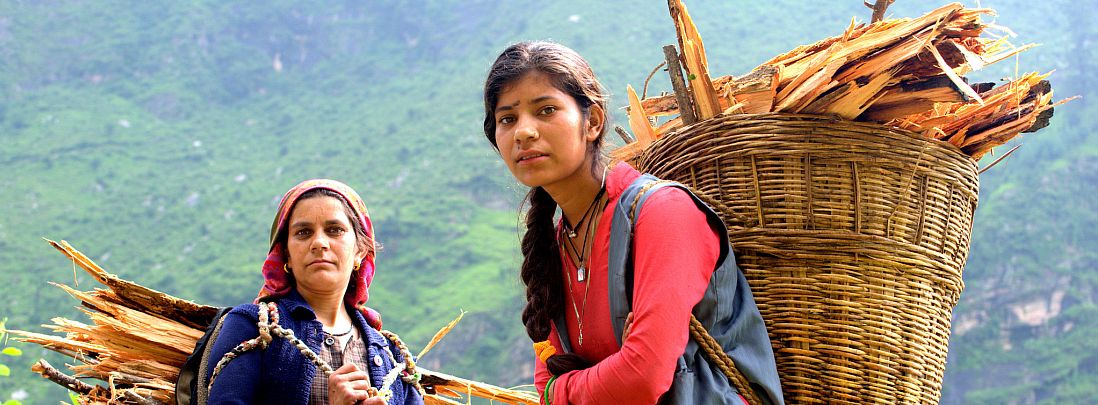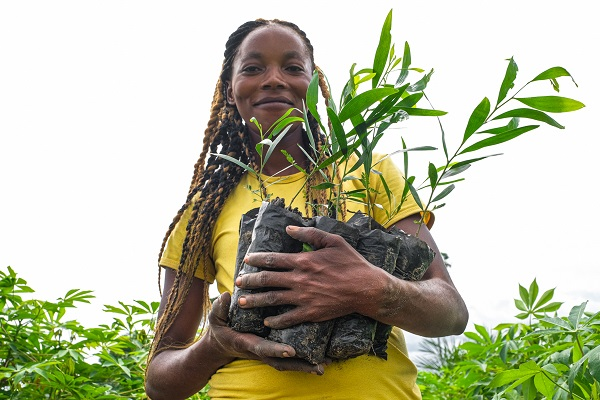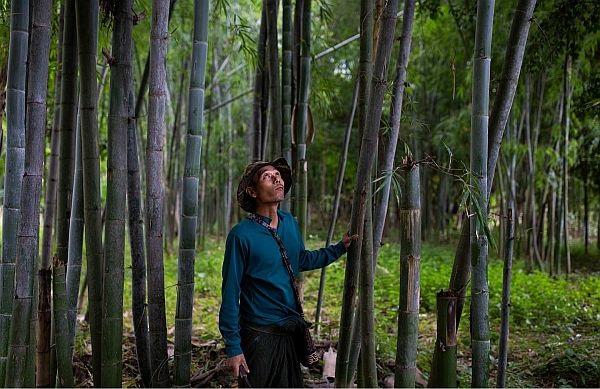
Tenure security for better forestry
Forest tenure determines who can use, manage or transfer forest lands and resources such as wood or non-wood forest products.
Governments are increasingly recognizing the immense potential of more diversified forest tenure arrangements that allow for the management of forest resources by local stakeholders. Rights to land and tenure security provide incentives for local communities to partner and participate in improved sustainable forest management.
FAO's work to strengthen forest tenure
- Assessment of forest tenure systems and their impact on forests and livelihoods.
- Collecting data on forest tenure at country, regional and global levels.
- Training and awareness-raising at national and international fora on forest tenure concerns.
- Supporting countries in the process of tenure reforms through policy advice, legal and regulatory reforms, field projects and the development of practical tools.
News

Countries must create legal solutions for rights over carbon and emissions reductions
15/11/2022
Sharm El Sheikh, Egypt - More clarity on who ‘owns’ emissions reductions is still needed to access different sources of forest carbon finance and protect the rights of vulnerable groups, according to a new information brief released today by the Food...
Publications
E-learning

Introduction to the Responsible Governance of Tenure
01/10/2013
The course introduces the main concepts and principles of the Voluntary Guidelines on the Responsible Governance of Tenure. It aims to help people understand...

Tenure security for better forestry: Applying the Voluntary Guidelines on the Responsible Governance of Tenure
01/12/2020
Strengthening tenure creates powerful incentives for the sustainable use of forest resources. Based on the Voluntary Guidelines on the Responsible Governance...
Forest tenure projects
Support for developing and implementing community forestry in Timor Leste
FAO Technical Cooperation Programme
The project aims to finalize the existing draft National Community Forestry Strategy, and build pools of capacity at the national and sub-national level to facilitate establishment of community forestry processes. During the project period, a framework and set of tools for an assessment of forest land tenure will be developed and used. Similarly, forest user groups will be formed and start operations based on agreed constitutions and forest management plans. The community forestry development approaches will be tested in four pilot sites representing different agro-ecological zones of the country.
Strengthening national forest policy in Timor Leste
FAO Technical Cooperation Programme
The first ever National Forest Policy (NFP) was formulated with technical assistance from FAO, and enacted in 2007. In order to promote sustainable forest management for the benefit of local people, the Government of Timor-Leste requested that FAO assist in reviewing the NFP, and in formulating the Forest Law as a legal instrument for NFP implementation.
More information | Publication
Securing tenure rights for forest landscape dependent communities: Linking science with policy to advance tenure security, sustainable forest management and people's livelihoods
The GEF5 CIFOR FAO project analysed and synthesised the emergence of reforms and the interaction between customary and formal land and forest tenure, policy implementation processes and practices and, livelihoods and sustainability outcomes of tenure reforms.
Piloting the Sierra Leone community-based forestry concept
FAO in partnership with the Sierra Leone Ministry of Agriculture and Forestry has been supporting the development of community-based forestry concept as a foundation for strengthening forest tenure rights in order to generate meaningful socio-economic and environmental benefits from sustainable forest management.
More information | Publication
Enhancing forest tenure and governance in Uganda in selected districts
From 2014–2016, FAO, the Forest Sector Support Department (FSSD) under the Ministry of Water and Environment (MWE), and the Uganda Forestry Working Group, with financial support from the Department for International Development, UK, implemented the project “Enhancing forest tenure and governance in Uganda” to pilot the process of registration of private forests and the declaration of community forests in Uganda, as provided for, but never implemented, in the 2003 National Forest and Tree Planting Act.
Strengthening forest tenure in Cambodia, Nepal and Viet Nam
The aim of the project was to strengthen the regulatory frameworks and institutional capacity of the pilot countries with regard to forest tenure, contributing to improving the livelihoods and income of forest-dependent communities.
Supporting forest tenure reform in China
This project supported the reform of forest tenure in China’s collective forests through strengthening policies, laws and institutions responsible for the management of collective forests in six pilot provinces.
Results and lessons learnt from the EU-SFA-FAO China Forest Tenure Project, 2013
Tenure reform: new policy-new policy instruments
Forest Farmer Cooperatives
Forest Tenure Trade Centres
Farmers benefit from forest privatization in China





